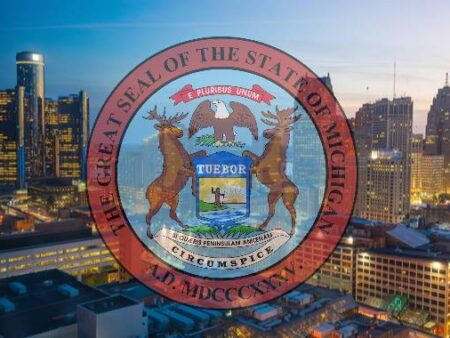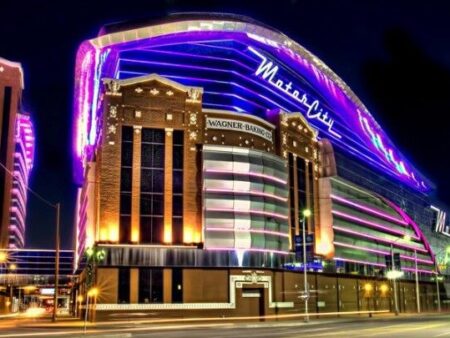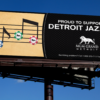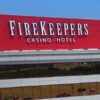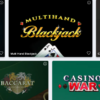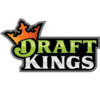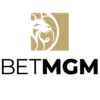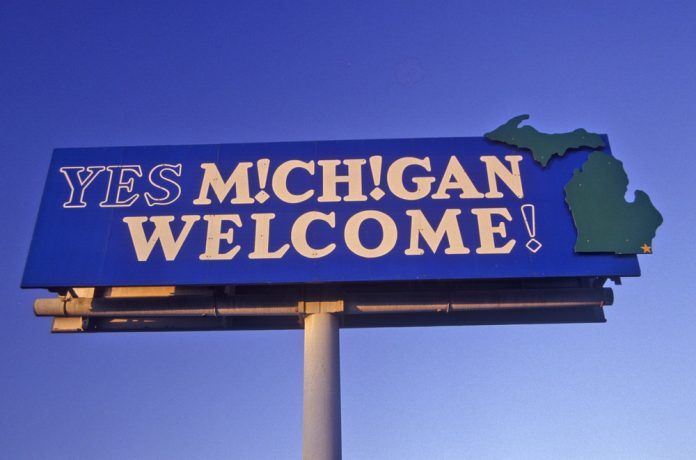
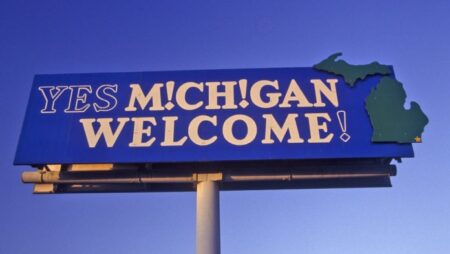 Michigan Gaming Control Board (MGCB)
Michigan Gaming Control Board (MGCB) People that voluntarily excluded themselves from the three commercial Michigan casinos in Detroit can now return to gamble. After nearly 20 years, Michigan gambling laws are changing to allow people that self-excluded themselves for life to be removed from the list.
Public Act 225 of 2020 is a new Michigan gambling law. It allows people that are on the state’s Disassociated Person’s List (DPL) to ask for their names to be removed from the list. This will have their gambling rights reinstated. The list is maintained by the Michigan Gaming Control Board (MGCB). Richard S. Kalm, Executive Director of MGCB said: “A lifetime ban actually may deter people from signing up. For others, their life circumstances may have changed.”
The MGCB decided to move away from the lifetime ban. Thus allowing some previously excluded gamblers to return to activity at Michigan casinos. This comes at a time when the three Detroit commercial casinos are struggling. These commercial Michigan casinos are Greektown, MGM Grand Detroit, and MotorCity. They have been operating at 15% of their normal capacity due to COVID-19 public safety rules.
As of October 2020, the lifetime-ban list included 4,825 names. MGCB says that the DPL applies to the three commercial Michigan casinos. This leaves the state’s 23 Tribal casinos uncovered by the policy. The MGCB board felt for a while that the policy is too restrictive. Support for easing up the policy also came from an unexpected source. Michael Burke, President of the Michigan Association of Problem Gambling also asserts that the policy needs to change. “The majority of our board felt the DPL lifetime ban in Michigan may have acted as a deterrent to gamblers,” said Burke. “[Gamblers] may be more likely to sign up if they have other self-exclusion options, such as a two or five-year ban available,” he added.
The MGCB already started to receive applications from listed persons. It has 30 business days to reply to any requests. These must be made through a ‘fully completed form’. MGCB Executive Director Richard S. Kalm also referred to the matter. “Previously, the state used criminal law to combat gambling problems for a lifetime,” Kalm said. “It is an expensive, harsh way to deal with an addiction.” When asked about the risk of relapse, Kalm answered: “Of course, people with gambling problems may request removal and resume behaviors they sought to prevent by going on the list.” He added: “Of course I’ve received many requests over the years from people on the DPL who wanted to remove their names. But state law did not offer that option until the new act was signed October 16.” What Kalm and others in the state are suggesting, is that at Michigan Casinos, gambling addiction issues must still be controlled, but in more effective ways.
The removal request, which again applies only to the three commercial Michigan casinos, includes full instructions for completion and submission. The MGCB then has 30 business days to process the request. They need to inform the applicants via writing if the request was approved or denied. But removal from the list still doesn’t guarantee the person can go back to the casino. The three commercial Michigan casinos have their own banned-persons list. They are allowed to keep the person’s ‘evicted status’ even if removed from the state’s DPL. If someone is still banned from a specific Michigan casino, they need to contact the property directly to discuss possible reinstatement.
Self-exclusion has also been a widely-discussed topic amongst online gambling operators and regulators. Michigan online casinos, poker, and sports betting are planned to be launched in December. So online Michigan gambling operators are already gearing up and working closely with the MGCB to apply responsible gambling policies and procedures.

